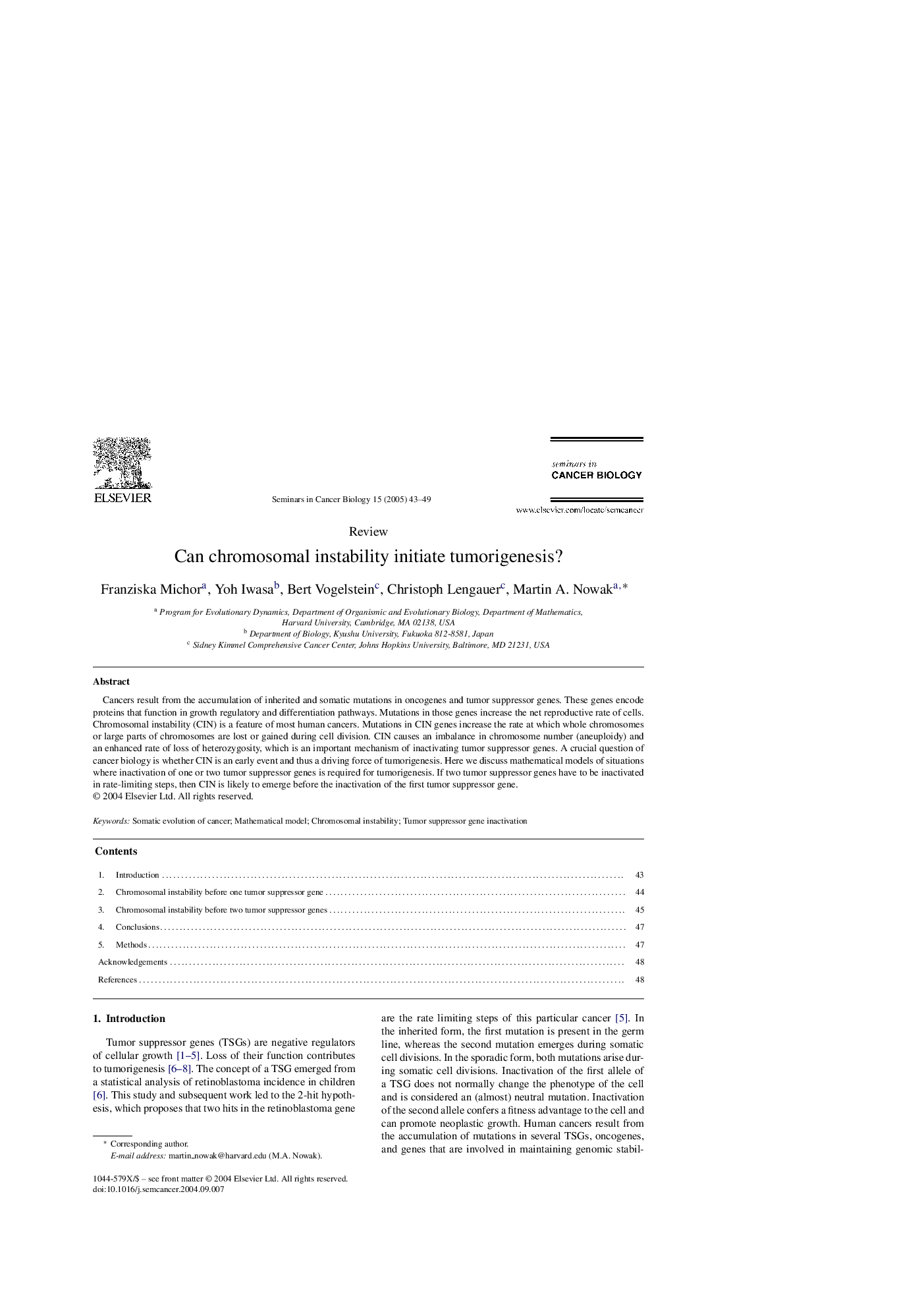| Article ID | Journal | Published Year | Pages | File Type |
|---|---|---|---|---|
| 10845922 | Seminars in Cancer Biology | 2005 | 7 Pages |
Abstract
Cancers result from the accumulation of inherited and somatic mutations in oncogenes and tumor suppressor genes. These genes encode proteins that function in growth regulatory and differentiation pathways. Mutations in those genes increase the net reproductive rate of cells. Chromosomal instability (CIN) is a feature of most human cancers. Mutations in CIN genes increase the rate at which whole chromosomes or large parts of chromosomes are lost or gained during cell division. CIN causes an imbalance in chromosome number (aneuploidy) and an enhanced rate of loss of heterozygosity, which is an important mechanism of inactivating tumor suppressor genes. A crucial question of cancer biology is whether CIN is an early event and thus a driving force of tumorigenesis. Here we discuss mathematical models of situations where inactivation of one or two tumor suppressor genes is required for tumorigenesis. If two tumor suppressor genes have to be inactivated in rate-limiting steps, then CIN is likely to emerge before the inactivation of the first tumor suppressor gene.
Related Topics
Life Sciences
Biochemistry, Genetics and Molecular Biology
Biochemistry
Authors
Franziska Michor, Yoh Iwasa, Bert Vogelstein, Christoph Lengauer, Martin A. Nowak,
